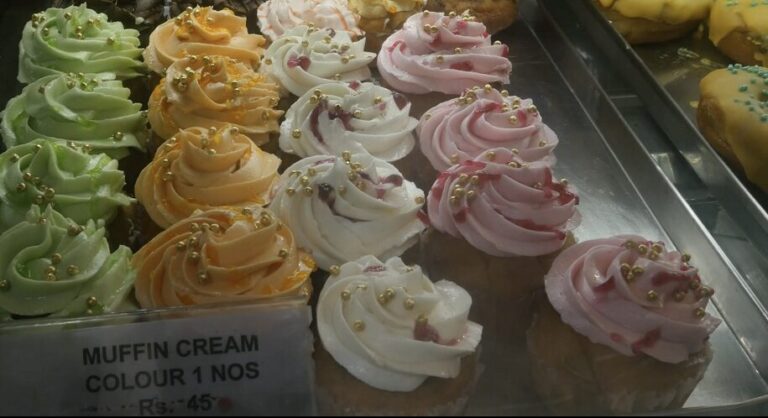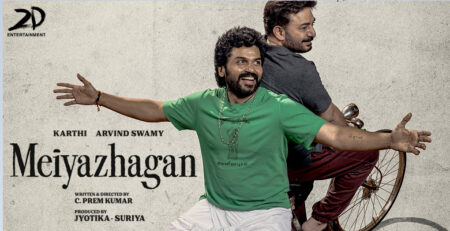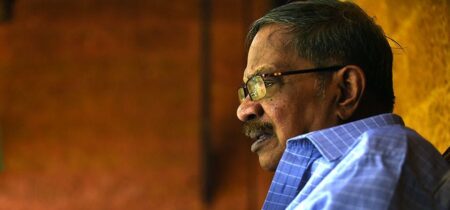In Ginger Biscuit, Sudha Padmaja Francis captures the stories of North Kerala’s bakery culture, blending history with personal memories in every frame.
It’s a documentary as crisp as a biscuit baked to the perfect brown. Something to be savoured
slowly, bit by bit, relishing the taste of every morsel and absorbing all the delectable chunks of
history that is hidden in every shot, every angle.
Sudha Padmaja Francis’s ‘Ginger Biscuit’ is a delightful journey through the stories of North Kerala’s
bakeries which introduced the very culture of baking to Kerala. Simultaneously, it is also a diving
back into our own personal pasts, reminding us of the childhood pleasures that came wrapped up in
crisp butter paper.
Bakeries were an integral part of life for any child growing up in small town Kerala. During the days
before the factory made breads and cakes and biscuits started to throng the shelves, local bakeries
baked their own bread. And cakes. And biscuits. The aroma of baking surrounded the little shops.
And every child has her own bakery tale to remember. Bakery goods were not everyday affairs.
They were once-in-a-while treats that were doled out when parents got a raise, a bonus, when
cousins came visiting or when there were very, very distinguished guests.
A taste of history
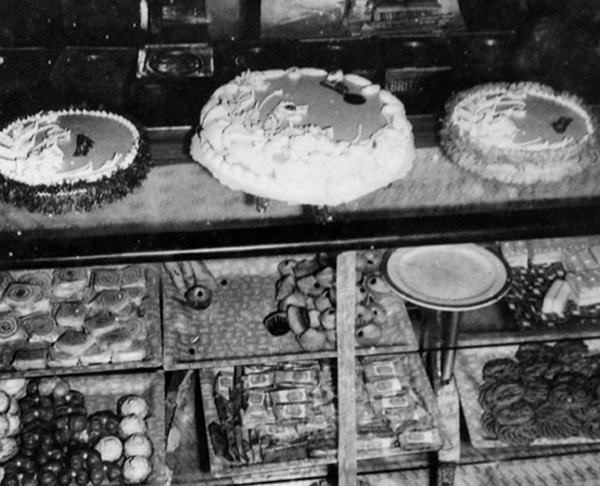
It was from the north of Kerala that the history of baking in Kerala originates. Of course it
is from the British that the Malayali learnt to bake, and it dates back to the late 19 th century.
Mastering the art of exact measurements and temperatures must have been quite a challenge for
those first bakers of Kerala, even India who used the traditional wood fired ovens and almost
ancient methods.
Baking has now become a huge industry. Factories churn out massive quantities of baked good
which flood the counters of numerous bakeries, big and small, throughout Kerala. People choose
their bread, biscuit and cake by the brand name. the ‘bakery bread’ is generally looked down and
frowned upon as the factory products advertise better hygiene and quality. In the face of this
culinary deluge, most of the old, original bakeries have almost vanished.
Those who still have not shut shop, are struggling to retain a foothold, refusing to compromise on their original recipes and methods to which they still cling onto with infinite pride. They are a part of the past, a living
memory. They are shards of microhistories, that are often forgotten and wiped out as monolithic
macrohistories are getting composed.
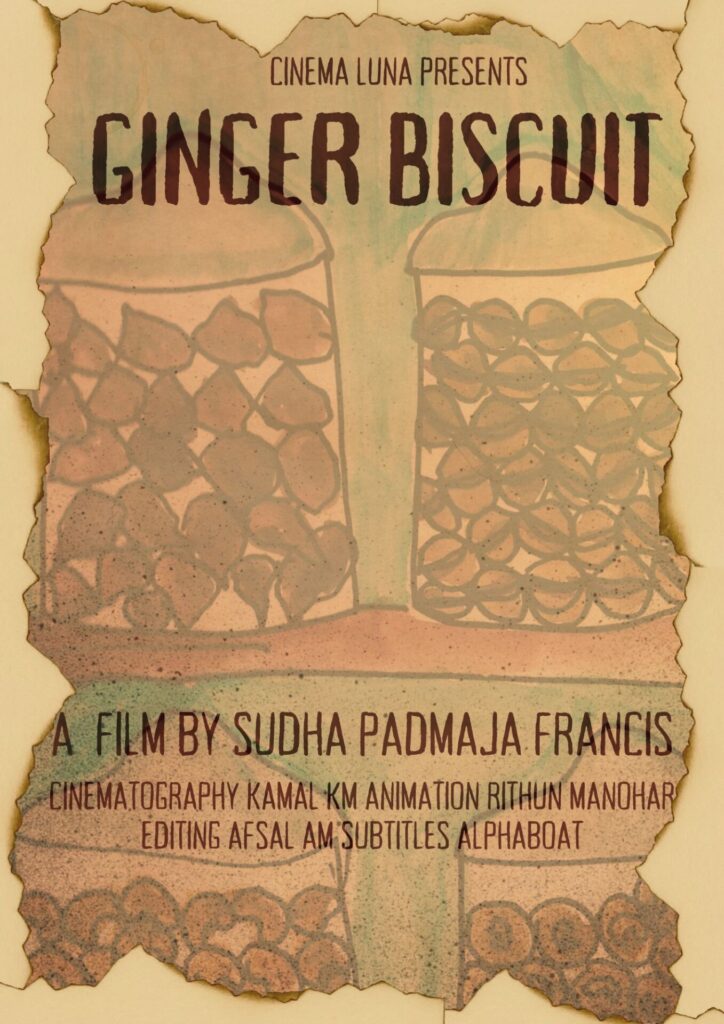
It is into these microhistories that Sudha is diving into as she steps into the small, dingy kitchens of
the old bakeries and into the bylanes of history. But these microhistories, the stories of your
neighbourhood bakeries, are also a part of a larger socio-political history, silently telling how a
community used trades such as weaving and baking to follow the advice of reformatory leaders such
as Sree Narayana Guru to step away from their traditional occupations like toddy-tapping, which
were often belittled by the larger society. It also hints at how the proximity to the ruling British
helped the communities that were deemed lower in the caste hierarchy to obtain a better social
ranking. Baking must also have helped this
From treats to tradition
‘Ginger Biscuit’ is also a documentary that turns upside down all the popular notions on how-a-
documentary-should-be. It is not a slick product with smooth edges and a glossy surface. Rather,
it’s like a powerful collage made up of torn chunks of paper, each bit throbbing with life.
The way Sudha does not try to hide herself from the frame while interviewing the people inside the
crowded, small kitchens behind the bakeries is endearing. And her intimate conversations with
them, sometimes in broken sentences, sometimes in muffled tones, add more life, than any
polished commentary could.
And ‘Ginger Biscuit’ is not Sudha’s first attempt to explore those cobwebbed corners of our intimate
history. ‘Ormajeevikal,’ (Memory Beings), an earlier documentary made with a PSBT-Doordarshan
Fellowship, explores the subaltern music culture of Kozhikode, and ‘A Tale of Threads and Fingers,’ is
a documentary on the weaving cooperative societies of Kerala, predominantly in north Kerala.
Sudha uses a portion from S.K. Pottekkat’s celebrated novel, ‘Oru Theruvinte Katha,’ (Tale of A
Street), which is quintessentially a saga of Kozhikode, to open the film, and returns to it in between.
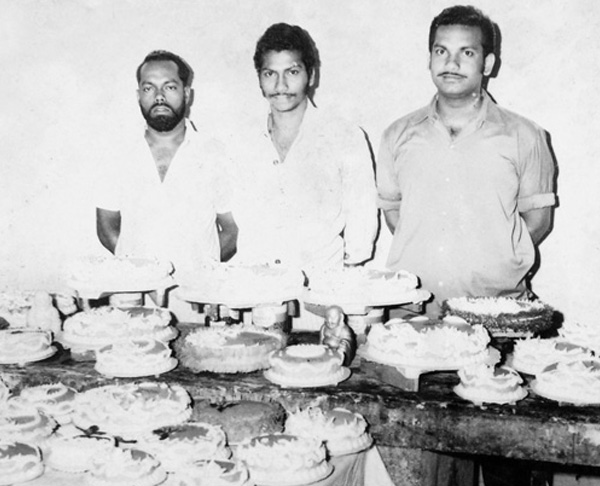
The use of animation, by Rithun Manohar, to illustrate the portion from the novel, as well as at the
end of the documentary to portray the making of a ‘fairy tale cake,’ which is no longer made, adds to
the charm of the film. The cinematography is by Kamal K.M., and editing by Afsal A.M. with subtitles
by Arsha Unnithan and Aswathi P Babu. And the film features, Lucky Star Bakery, Kozhikode,
Krishnan Bakery, Kozhikode, The Cochin Bakery, Kozhikode, Mambally Bakery, Thalassery,
Jayabharathi Bakery, Thalassery, Sheen Bakery, Kannur, Malabar Bakery, Kannur and Brownies
Bakery, Kannur.
A graduate from the University of Reading, UK with a Masters in Creative Enterprise (Film), Sudha’s
first short film, ‘Eye Test,’ has won the National Award for Best Cinematography in 2017 and was
screened at many international film festivals. She is currently a research scholar at the School of
Humanities and Social Science, Indian Institute of Technology, Palakkad.
‘Ginger Biscuit’ was recently screened at Kerala Museum at Edappally as part of the JANAL Archive
that is attempting to open up a digital canvas for the history of Kerala. The screening was followed
by an interaction led by Dr. Suryanandini Narain, from JNU, New Delhi who joined online.

